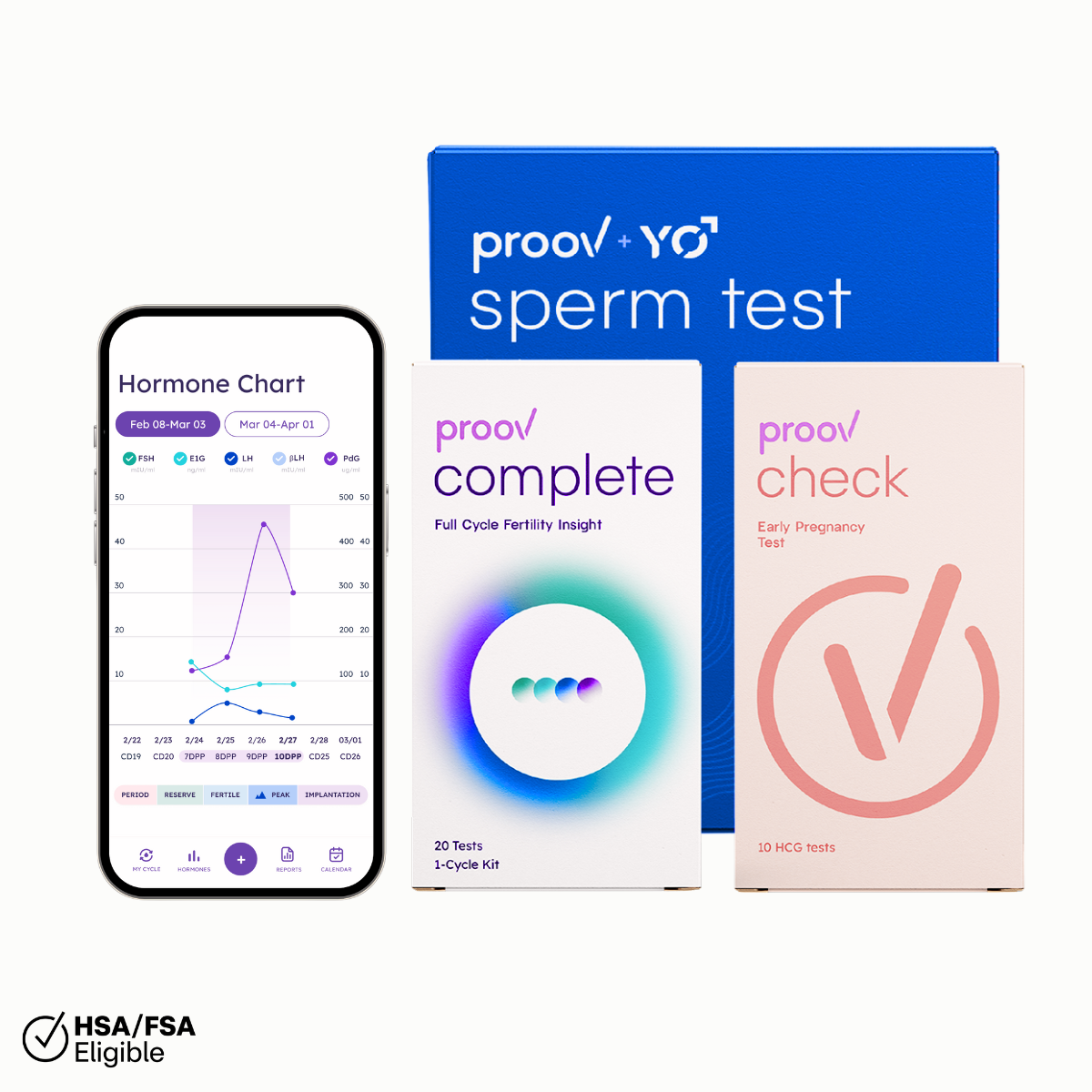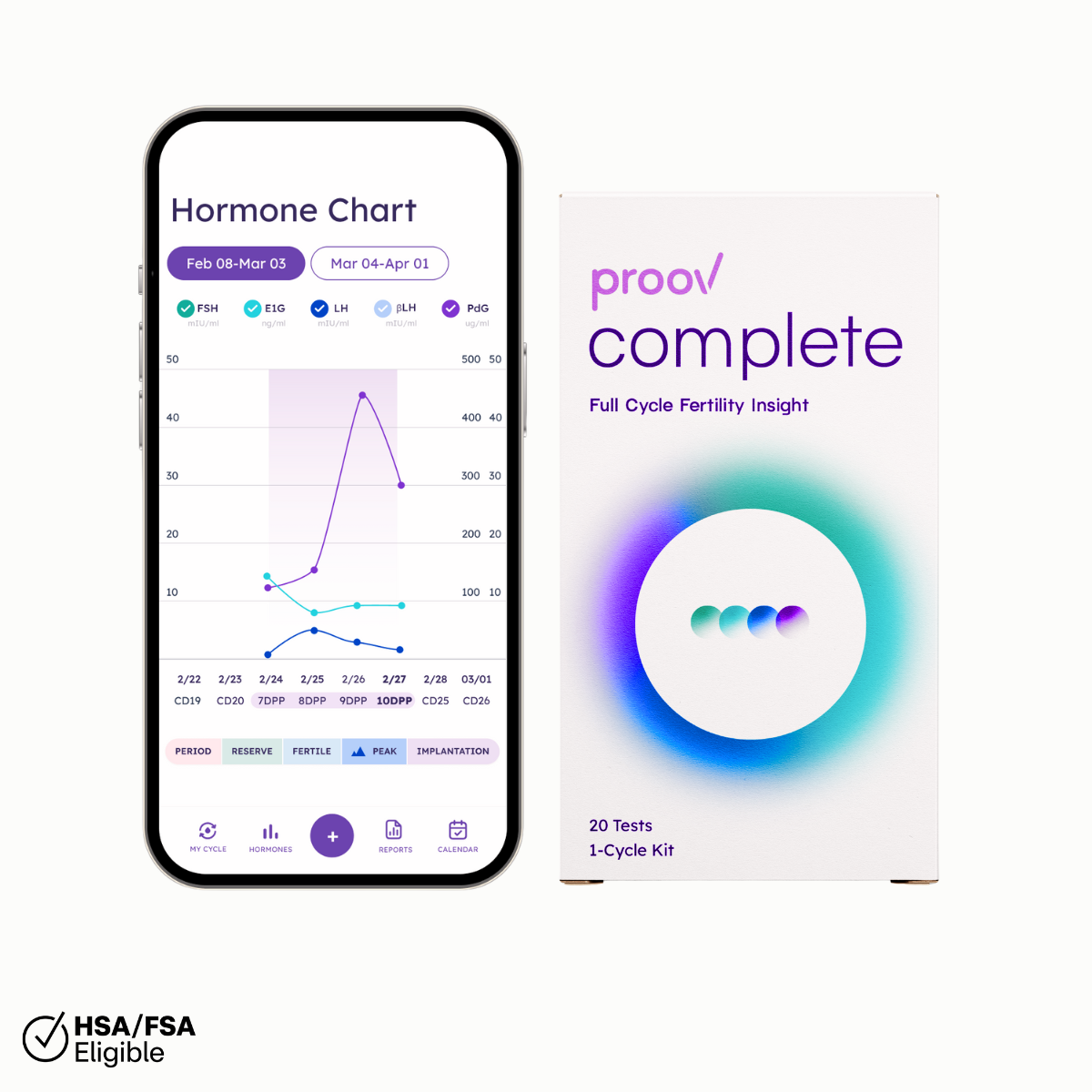Updated 12.9.22

So, you think you might want to have a baby. Maybe not this very instant – and that’s okay! – but at some point. And maybe you’re wondering if there’s anything you can do now to prepare.
Well you’ve come to the right place! Whether you’re ready to have a baby now or several years from now, there are some key lifestyle habits you can try to get your body ready for getting pregnant. (You may find a lot of these can help you live a healthy life in general!)
Keep reading to learn our 5 favorite lifestyle tips for getting pregnant.
1. Maintain a healthy weight
Weight impacts fertility more than you might expect. Your weight can have an impact on reproductive hormone levels – the key messengers in your body that regulate the menstrual cycle and your ability to conceive.
Abnormally high body weight means that there is likely an abnormally high amount of fat cells. Fat cells produce estrogen, one of the two main female reproductive hormones. An excessive amount of fat cells can cause an overproduction of estrogen (also called estrogen dominance), which disturbs the delicate hormone balance that regulates your cycle.
On the other hand, an abnormally low body weight can impact your fertility as well. A healthy amount of fat is necessary for promoting the production of reproductive hormones.
When you think about it, it makes sense – if your body fat is too low, your body thinks it’s starving and needs to use any resources it can for vital functions. That means the resources that would be used to make reproductive hormones instead go towards things like keeping your heart beating and conserving energy.
Similarly to a high body weight, a low body weight can cause hormonal imbalances that may prevent ovulation or make it more difficult to get pregnant.
If you have specific concerns about your weight, we recommend consulting your doctor.
2. Get plenty of sleep
We’re sure everyone would like to get a little more sleep than they do. When it comes to fertility, getting adequate sleep is really important!
A study from the American Society of Reproductive Medicine found that women with low sleep quality (meaning not getting enough sleep) were more likely to have lower fertility rates than those who got 8-9 hours of sleep per night.
Other experts have found that lack of sleep can impact reproductive hormone production. Just another reason to get those zzz’s!

3. Curb the caffeine
Don’t worry – we’re not saying you need to cut caffeine out altogether (we would struggle with that, too!). But, a lot of research suggests that limited caffeine intake is ideal if you’re thinking about getting pregnant.
One study found that women who drank over 500 mg of caffeine per day had a harder time getting pregnant than those who drank less. To put this in perspective, one cup of coffee roughly has 95 mg of caffeine so you’d have to drink several cups a day to hit that mark.
Some experts suggest limiting caffeine intake to 300 mg per day or less, which is about 3 cups. So one or two cups throughout the day is fine – although caffeine intake too late in the day may impact your sleep.

4. Avoid smoking and alcohol
Tobacco is associated with a 40% decrease in fertility, so it’s best to cut out smoking altogether if you’re thinking of having a baby (among other health concerns).
Smoking can cause the amount of eggs you have left (a.k.a. your ovarian reserve) to decrease faster than normal. If you’re struggling with smoking or quitting tobacco, we recommend consulting your doctor.
Alcohol, on the other hand, is kind of like caffeine: in moderation, it’s okay, just try not to overdo it.
Excessive alcohol consumption has been associated with problems with ovulation and one study found that having more than 14 drinks per week can make it take longer to get pregnant.
5. Eat a balanced diet
We know – you’ve heard this one before! Consuming a balanced diet can have positive impacts on virtually every aspect of your health, and fertility is no exception!

There are plenty of nutrients, minerals, and food groups that can impact your fertility. Here are just a few:
- Iron: Iron helps the body create reproductive hormones and can reduce the risk of ovulatory infertility (i.e. problems with ovulation that make it harder to get pregnant).
- Folate: Folate may increase the chances of getting pregnant and can prevent developmental disorders during pregnancy.
- Carbohydrates: Some carbs are better to prioritize than others. Simple or refined carbohydrates (think white bread, sugary foods, or soda) can spike your blood sugar and insulin – the hormone that helps control blood sugar levels. Spikes in insulin can cause imbalances in other hormones, including reproductive hormones. Complex, fiber-dense carbohydrates (like whole wheat, grains, and brown rice) keep your blood sugar and hormone levels balanced.
- Zinc: Zinc and other antioxidants have been shown to promote sperm and egg health. One study found that zinc may play a critical role in egg development.
- Avoid Trans Fats: Trans fats have been linked to ovulatory infertility in women, and infertility in men.
If you have questions or concerns about your individual diet, we recommend talking to your doctor.
What are some other tips you’ve heard for getting pregnant? We’d love to hear them! Feel free to reach out to us on social media or email us at info@proovtest.com.














